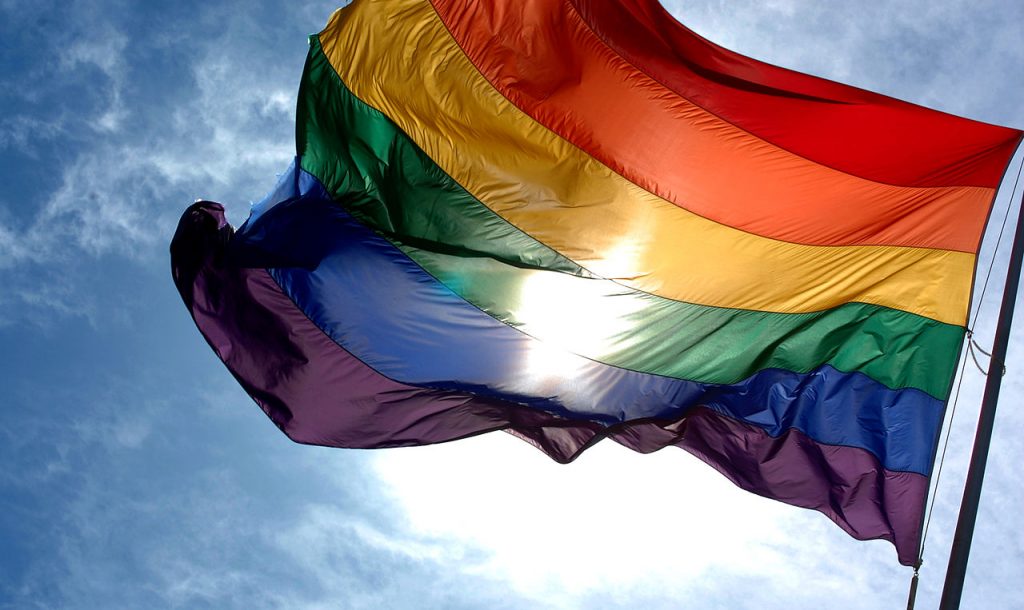Sensationalism and appeals to emotion are driving the campaign to outlaw homosexuality in Indonesia, Hendri Yulius writes.
Although attacks against LGBT people in Indonesia in the past few decades have been sporadic and committed mostly by mostly religious vigilante groups, current anti-LGBT attitudes are being translated into legal steps to outlaw homosexuality. Hearings and debates held to date are proof of how gender and sexuality have become a political battleground in contemporary Indonesia.
An Islamic pro-family group, the Family Love Alliance (Aliansi Cinta Keluarga), with support from other conservative groups, has asked the Constitutional Court to change the definition of adultery, rape, and sodomy in criminal law, so as to criminalise consensual homosexual practices between same-sex adults. Some of the experts present in court included representatives of the Caring Friend Foundation (Yayasan Peduli Sahabat/ YSF) – a new organisation offering ‘sexual conversion’ using religious rhetoric – as well as the National Commissions on Anti-Violence against Women (Komnas Perempuan), and the Indonesian Ulema Council (Majelis Ulama Indonesia/MUI).
Significantly, discussion on the cause of homosexuality tends to coalesce around anal sexual pleasure. Perceived as an ‘unnatural sexual act’ and long conflated with ‘sexual crimes against children’ in Indonesia’s history, anal intercourse has been brought to the forefront of the discussion as a way to get lawmakers and the majority of people onside.
The term ‘anal sex’ is by no means a recent addition to discussions of homosexuality in Indonesia. Indonesians involved in same-sex relationships or practices began to identify as ‘gay’ and ‘lesbi/lesbian’ in the late 1970s. The first openly lesbian marriage was held in April 1981. Anal intercourse was also a major focus in the 1990s HIV/AIDS prevention efforts in gay, transgender, and men-having-sex-with-men (MSM) communities.
Anal sex tends to be pejoratively termed as ‘sodomi’ (sodomi)—imbuing it with a religious reference that is often used to condemn homosexuality. This term has been associated with high-profile cases of sexual violence against children. In 2010, 49-year-old Baekuni, alias Babeh, sodomized and murdered four street children, while in 2014, teachers from the Jakarta International School (JIS) were charged with sodomising students. In the same year, a 24-year-old sodomized 28 children and sexually harassed a further 16.
With these crimes associated with ‘sodomy’ in the public mind, it is not surprising to see it deployed in the courtroom in this recent attempt to criminalise homosexuality. Some of the arguments include the notions: that homosexuality encourages children to ‘play dirty’ (main kotor) with each other; that homosexuality is ‘contagious’ and can be transmitted through pleasure and repeated action; and that a boy who has been penetrated once will naturally search for more and become homosexual. Concerns about public health and accusations that gay men are vulnerable to anal cancer are even used to claim that HIV transmissions will imperil the State’s budget, at the expense of providing health cover to unproductive citizens. Lesbians have similarly been targeted for their vulnerability to breast cancer.
A final argument is that anal penetration is ‘dirty’. Opponents in Indonesia’s Constitutional Court even asked whether the act violates Indonesia’s Pancasila—the State philosophy. It was argued that the act is against the principle of ‘civilised humanity’, and that the anus, through its association with faeces, should not be treated as parts of ‘human rights’. In this way a far-reaching interpretation of Pancasila is used in order to convince people that homosexuality is dirty and against the State’s principles.
Blogger David Roberts’ concept of post-truth politics helps to illustrate what is going on here. What matters is not the evidence or logic behind the arguments themselves, but instead the emotions that appeal to the public and to lawmakers. To borrow from Sara Ahmed’s work, emotions are not only psychological dispositions, but also investments in social norms that are accumulated over time. Since sodomy has significant negative connotations, when placed alongside a rhetoric of children and ‘hygiene’ it generates an emotional response that views anal intercourse as somehow ‘jeopardising’ the future of the nation’s children. An emotional appeal to policymakers and the public is therefore one of the easiest ways to convince the public of the immorality of homosexuality, in an attempt to criminalise LGBT people in Indonesia.
Hendri Yulius obtained his Master’s in public policy from the National University of Singapore, and is the author of Coming Out. He is currently pursuing his Masters by Research in Gender and Cultural Studies at The University of Sydney.
 Facebook
Facebook  Twitter
Twitter  Soundcloud
Soundcloud  Youtube
Youtube  Rss
Rss 